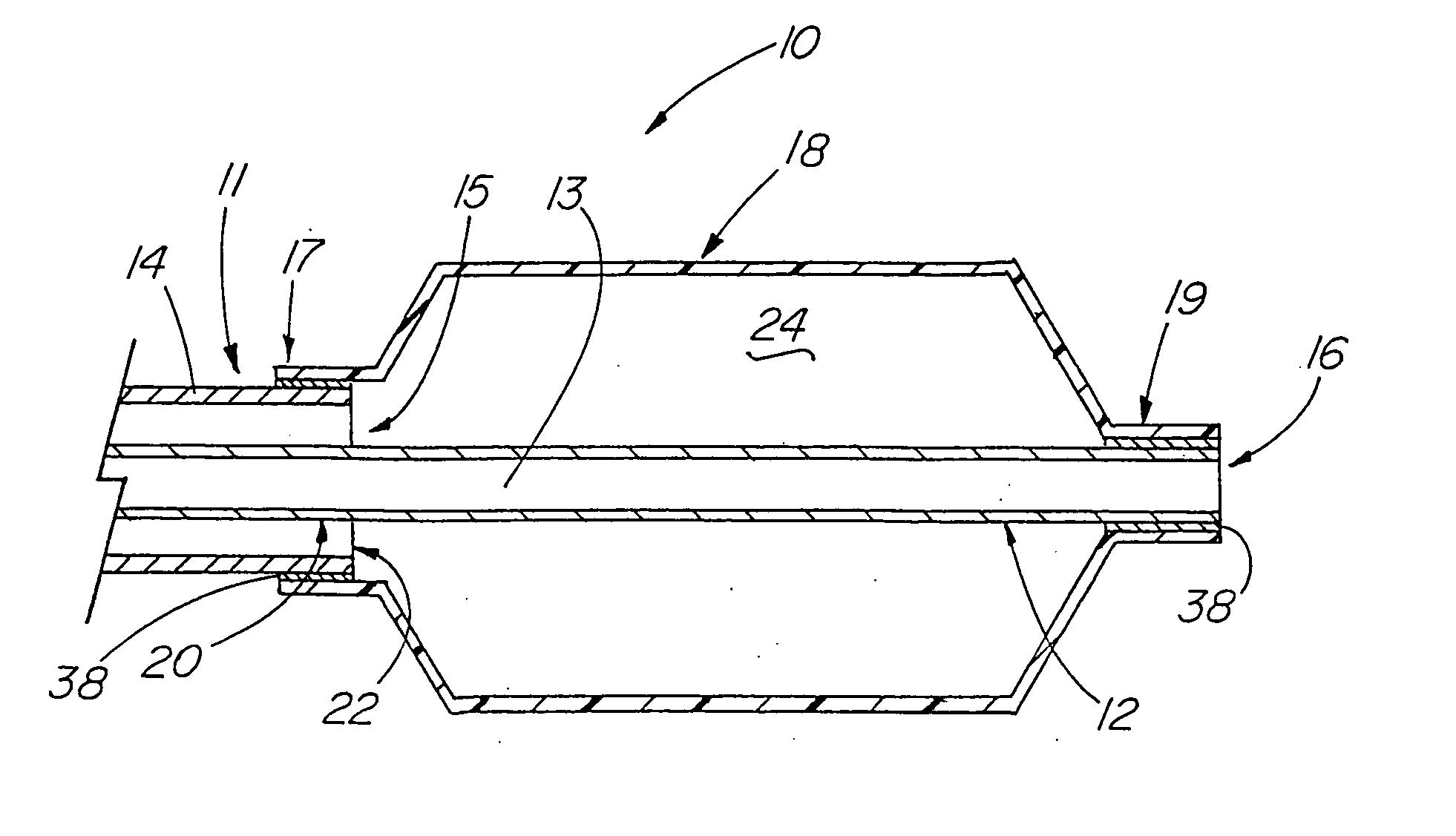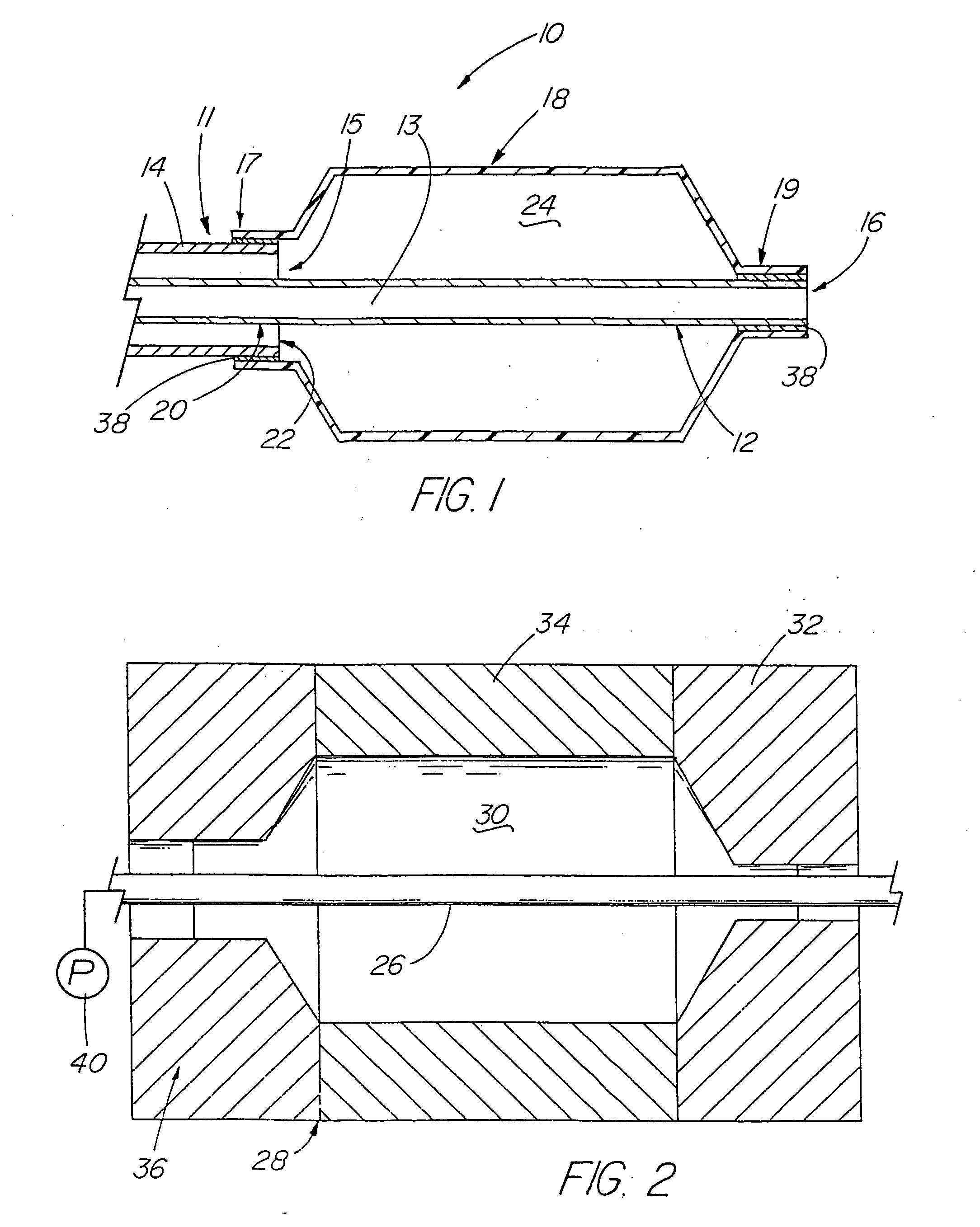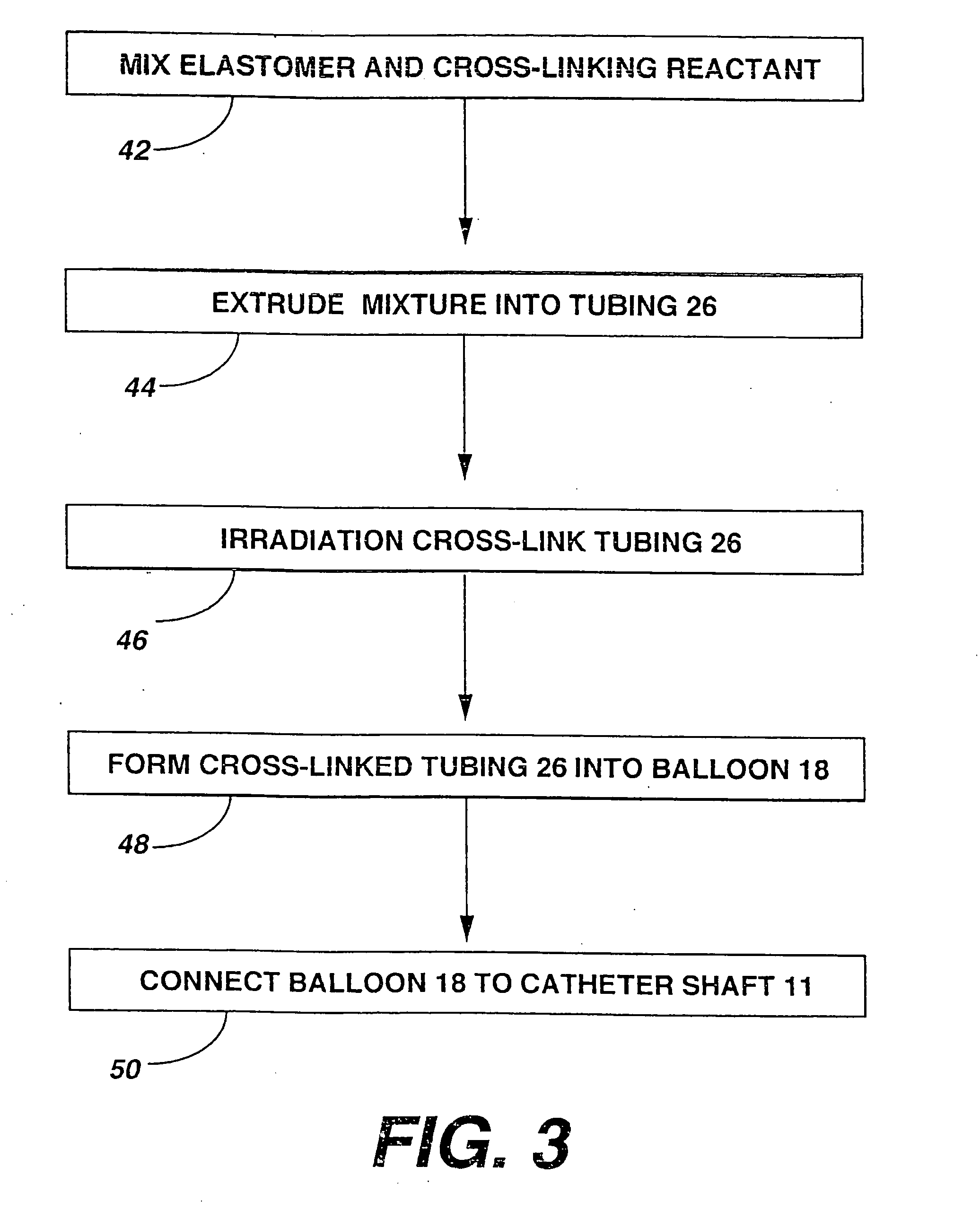Medical device including unitary, continuous portion of varying durometer
a technology of varying durometer and unitary portion, which is applied in the field of medical devices, can solve the problems of inability to easily match the final desired diameter of the balloon, inability to fold, and excessive crystallinity, so as to improve the combination of strength and prevent the effect of restnosis
- Summary
- Abstract
- Description
- Claims
- Application Information
AI Technical Summary
Benefits of technology
Problems solved by technology
Method used
Image
Examples
examples
[0101] A variety of examples of irradiation cross-linked mixtures of PEBAX® brand nylon block copolymer with differing amounts of triallyl cyanurate or triallyl isocyanurate (“% XL”) as the at least one cross-linking reactant are disclosed in Tables 1 through 4 annexed hereto. The French size indicates the size of the tubing 26 from which the balloon 18 is made, while the Double Wall (in inches) indicates twice the wall thickness of the balloon 18 ultimately formed (the thickness of the opposing balloon walls when pressed together). In the Material Formulations column in the Tables, 7233SAO1 and 6333SNO1 refer to two different grades of PEBAX® brand copolymers. Formulations containing both grades thus constitute mixtures of two different copolymers. The particular nylon block copolymer mixtures used in the examples were specially ordered mixtures, mixtures which it is believed are not otherwise commercially distributed at this time. More specifically, it is believed that Foster Corp...
PUM
 Login to View More
Login to View More Abstract
Description
Claims
Application Information
 Login to View More
Login to View More - R&D
- Intellectual Property
- Life Sciences
- Materials
- Tech Scout
- Unparalleled Data Quality
- Higher Quality Content
- 60% Fewer Hallucinations
Browse by: Latest US Patents, China's latest patents, Technical Efficacy Thesaurus, Application Domain, Technology Topic, Popular Technical Reports.
© 2025 PatSnap. All rights reserved.Legal|Privacy policy|Modern Slavery Act Transparency Statement|Sitemap|About US| Contact US: help@patsnap.com



